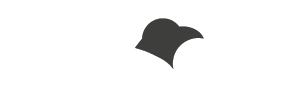Request for Proposals: Inaugural Crow fellows
The deadline for applications for this RFP has passed; it is maintained here for archival purposes only.
Download a PDF version of this RFP. Ready to apply? Here’s the submission form.
Crow, the Corpus and Repository of Writing, was created to support research and evidence-based teaching in the writing classroom. Two of our primary goals are (1) to provide accessible corpus-based resources adaptable for the writing classroom and (2) to provide mentorship and training for writing instructors interested in learning more about developing corpus-based materials for their classrooms.
It is with great excitement that we announce our Crow Fellows Program! The Crow Fellows Program is specifically designed to introduce and engage writing teachers in our CRAFT: Crow Resources and Activities for Teachers. This project supports corpus-based pedagogy for the writing classroom. Applicants do not need to have any training in corpus-based methods to participate. Fellows will participate in a 9 month cohort experience with Crow where they will learn foundational skills in corpus methods for teaching and how to develop materials relevant to their own contexts. Fellows will be invited to participate by:
- engaging with a 7 module online course for using corpora in the classroom (estimated time commitment 7-10 hours total)
- meeting together with Crow members three times throughout the fellowship period for brainstorming, initial feedback, and final edits
- developing corpus-based or corpus-informed materials for a specific assignment in their course
- providing and receiving feedback on their materials with their cohort peers
- piloting their materials in their class (with the support of Crow members)
- showcasing their materials on Crow’s website
Our hope with our fellowship program is to provide opportunities for teachers to continue their professional development and innovate their pedagogy with corpus-based methods. There are several advantages of using corpus-based methods and materials for teaching, specifically from learner corpora:
- Heightening students’ awareness to language patterns
- Exposing students to authentic texts written by students from similar contexts
- Allowing students to explore and discover linguistic features on their own and/or with varying levels of guidance
- Providing examples of texts to which students can relate
- Contextualizing writing choices in a given genre or register
- Increasing students’ lexical variety
- Promoting learner autonomy
- Promoting an additive/descriptive view of language
Invitation to Participate
The Crow team invites proposals for the 2021-2022 Crow Fellowship Cohort. Successful fellows will have the opportunity to engage in learning how to apply corpus-based methods in their classrooms, and will also receive a $500 stipend for their fellowship cycle.
Applicants do not need to have a background in corpus linguistics or in corpus-based materials development. In fact, we are especially interested in teachers without an extensive background in corpus linguistics and who do not have access to corpus training through their institutions.
Applicants should be current classroom teachers or be able to pilot the materials in a course through collaboration with another instructor. We welcome applications from foundations writing and first year composition instructors at two-year and four-year institutions in the United States. Fellows will be expected to pilot the materials they create with students. The final product for the grant period will be pedagogical materials that will be showcased on our team website, https://www.writecrow.org. Fellows may also participate in mentorship related to publishing their work with a journal of their choosing.
We strongly encourage proposals from teacher-scholars from historically marginalized groups, early career teacher-scholars, contingent faculty, and/or teacher-scholars working with students from historically marginalized groups.
Application process
The proposal application includes:
- A current and up to date CV or résumé
- A 1-2 page application letter (single-spaced, 11 or 12 pt font) that includes:
- A brief biography (Who are you?)
- Experience with or exposure to corpus linguistics, if any (Have you previously used corpora? Have you heard about corpora before? Do you have access to training in corpus linguistics at your current institution?)
- Experience with or exposure to teaching with technology (What experience do you have using technology in the writing classroom?)
- Students and contexts (Who are your students? What is your school like? What types of assignments are your students engaged with? Will you be teaching during the 2021-2022 academic year? If you work with students from historically marginalized groups, please explain. Please describe how, as a teacher-scholar, you engage students from diverse backgrounds.)
- Goals (What do you hope to learn from this experience?)
- Materials representing a major assignment from a course that you find critical for students’ achieving the course outcomes
- The purpose of this assignment submission is to ensure the Crow team can gain a better insight into your class and better understand the goals of the course so that we can be sure to address/meet your specific needs for your context.
To apply, please complete our application form: writecrow.org/crowfellow-app. If you have questions, contact Dr. Ashley J. Velázquez <velazqa@uw.edu>. All applications will be acknowledged.
Timeline
- May 28, 2021: Grant submissions due at 11:59pm Pacific Time (USA)
- June 1, 2021: Crow team members will begin reviewing applications
- June 30, 2021: Notification of awards
- July 30, 2021: Grant funds disbursed
- August-September 2021: Participation in corpus-based pedagogy mini course (1 hour per week for 7 weeks)
- October-December 2021: Piloting of pedagogical materials
- January-May 2022: Additional piloting and/or revision of materials
- May 31, 2022: Submission of final version of pedagogical materials for publication on https://www.writecrow.org
Crow Fellows grants are possible through funding from an American Council of Learned Societies (ACLS) Digital Extension Grant.
Document history
2021-0412: Original published.
